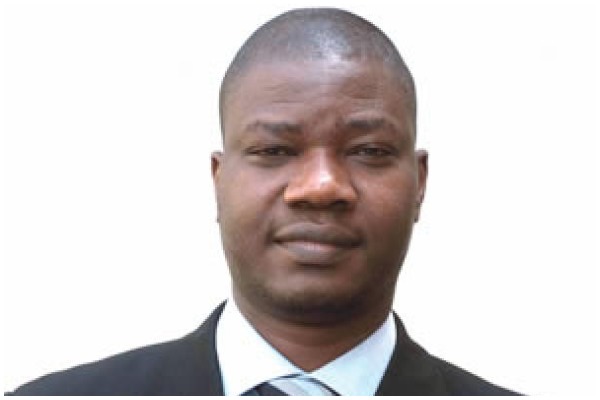
According to the OHCHR, “Human rights are rights we have simply because we exist as human beings – they are not granted by any state. These universal rights are inherent to us all, regardless of nationality, sex, national or ethnic origin, colour, religion, language, or any other status. They range from the most fundamental – the right to life – to those that make life worth living, such as the rights to food, education, work, health, and liberty.”
Nigeria, aside from ratifying and adopting the UDHR, has gone ahead to sign on to several other international human rights covenants and protocols. For instance, there are ECOWAS Protocol on Democracy and Good Governance, the African Charter on Human and Peoples’ Rights, International Covenant on Civil and Political Rights. It should be remembered that one of the three cardinal principles of rule of law according to Prof. A.V Dicey is the fundamental human rights which come after supremacy of the law (constitutionalism) and equality before the law. Apart from the aforementioned, the 1999 Constitution gave vent to the observation of these fundamental rights.
Chapter II talks about fundamental objectives and directive principles of state policy wherein you find provisions such as that of Section 14(1) which says, “The Federal Republic of Nigeria shall be a State based on principles of democracy and social justice” and 14(2)(b) which says “the security and welfare of the people shall be the primary purpose of government.” Others include Section 14(3) which advocated for federal character principles and Section 15(5) which states, “The state shall abolish all corrupt practices and abuse of power.” It is also in this Chapter II, Section 22 you find the obligation of the mass media where it states specifically that “the press, radio and television and other agencies of the mass media shall at all times be free to uphold the fundamental objectives contained in this chapter and uphold the responsibility and accountability of the government to the people.”
On the other hand, Chapter IV deals with fundamental rights such as the right to life (Section 33 (1); the right to dignity of human person (Section 34(1); the right to personal liberty (Section 35(1); the right to fair hearing (Section 36(1); and right to private and family life (section 37). Others include the right to freedom of thought, conscience and religion, the right to freedom of expression and the press, the right to peaceful assembly and association, the right to freedom of movement, the right to freedom from discrimination and many others.
With this plethora of rights and freedoms, where are we in Nigeria? It is important to note that there’s no absolute right anywhere in the world. This is because where someone’s rights end is where another person’s rights begin. Moreover, the law empowers the state to take the life of a convicted criminal. The freedom of movement is also circumscribed in a state of emergency when there is a curfew. Many national and international human rights organizations, such as Human Rights Watch and Amnesty International, are also in agreement that there is a gross abuse of human rights in Nigeria despite being under civilian administration. There is still detention without trial, trial by the media, exploitation and extrajudicial killings by institutions meant to help enforce human rights such as the Nigeria Police Force and Department of State Services. Recall that it is the repressive actions and exploitation by a section of the police, known as the Special Anti-Robbery Squad, that led Nigerian youths across the country to embark on a popular uprising known as #EndSARS protests in October 2022 during which many lives were lost and multi-billion naira worth of property destroyed.
Many national and non-governmental organisations have also accused the regime of the President, Major General Muhammadu Buhari(retd.), of shrinking the civic space with some of his actions and decisions. For instance, the suspension of operations of the micro-blogging site, Twitter, in Nigeria last year for about six months, the introduction of draconian sections in the amended Company and Allied Matters Act 2020, the protracted strike for nine months and eight months respectively in 2020 and 2022 by the Academic Staff Union of Universities, are all cited as part of the abuse of fundamental rights of Nigerian citizens.
It took the intervention of the judiciary to enforce the rights to non-discrimination by Nigerian women as enshrined in Section 42 of the 1999 Constitution. 10 women orgnisations, including Women in Politics, Nigeria Women Trust Fund and others, sued the Federal Government sometime last year and judgement was given in favour of Nigerian women on April 6, 2022, when the Federal High Court in Abuja ordered the Federal Government to enforce the National Gender Policy by allotting 35 per cent of appointments in the public sector to women. Delivering his judgement on the suit the judge, Donatus Okorowo, agreed with the plaintiff that Nigerian women had been subjected to various forms of discrimination concerning appointments into key positions of government.
A major threat to human rights in Nigeria today is that which is facing the political freedom of Nigerians. Unfortunately, this threat is coming from non-state actors. Part of the fundamental rights of Nigerian citizens is to vote and be voted for. Article 21 of the UDHR and Article 25 of the International Covenant on Civil and Political Rights make provisions for the right to political participation. Also, Article 13 of the African Charter of Human and Peoples’ Rights provides that every individual has a right to take part in the affairs of government without any interference. The 1999 Constitution in section 14(2)(c) provides that “the participation by the people in their government shall be ensured in accordance with the provisions of this constitution.” Furthermore, Section 77(2) of the 1999 Constitution states, “Every citizen of Nigeria, who has attained the age of 18 years residing in Nigeria at the time of the registration of voters for purposes of election to a legislative house, shall be entitled to be registered as a voter for that election.”
With the escalation of political violence, the attacks on about 50 offices of the Independent National Electoral Commission between 2019 and Monday, December 12, 2022, there is a serious threat to the peaceful conduct of the 2023 general elections. Apart from disenfranchising potential voters who may not be able to collect their Permanent Voters Card and could as well lead to voter apathy, if care is not taken, this may induce a military coup d’état. Truncating democracy barely 23 years into this Fourth Republic will be a serious setback to the democratic project of the country. Therefore, all and sundry must work to resist those who want to rob us of the opportunity to elect our leaders through peaceful and credible means.
Twitter: @jideojong





